Adrenal Glands and Mood

Adrenal hormones are often ignored in the conventional medical model until their levels reach extreme pathological elevations or deficiencies. However, the adrenals produce cortisol, DHEA, epinephrine (adrenaline), and norepinephrine, which are all critical to mood health, and when they are outside of an optimal range, mood is one of the first things affected. Imbalance in the adrenal glands typically results in depression, anxiety, insomnia, and fatigue, depending on whether the adrenal hormones are high or low. The adrenals also have a strong relationship with neurotransmitter production, thyroid hormone production, sex hormone production, and inflammation. So adrenal health is a pivotal aspect of treating depression and other mood issues.
What's Causing Your Depression?



















































































When I say lifestyle, what I mean is the basic requirements of life—food, exercise, sleep, stress, and substance use. In short, it means the way you live—too much excitement or stress, too little sleep, forcing your body to deal with constant alcohol, tobacco, drugs, or poor diet. These contributors are the foundation of the chemistry of your body and mind, and will influence how your brain chemistry operates; and they may contribute to episodes of depression along the way if they are out of balance.
Most of us thrive when we keep our pace of life in the slow to medium range. Unfortunately the modern lifestyle doesn’t make this easy for us, because we are often saturated with responsibilities, work, tasks, information, commutes, and expectations to keep up with the pace of others. Depression can develop when dealing with difficult life situations, especially when the situation is long term.







Neurotransmitters are the main chemical messengers of mood, and they include "uppers", which lift your mood and stimulate excitement and activity, and "downers" which calm and relax. Neurotransmitter imbalances are pivotal treatment areas for mood disorders, and they can be tested and treated individually. Imbalances in neurotransmitters can result from many areas, included genetics, gut health issues, and hormone imbalances in the adrenals, thyroid, and sex hormones.
Depression can be a result of several different neurotransmitter imbalances, including serotonin, dopamine, and norepinephrine. The two main branches of depression are serotonin dependent, which presents as a weepy, sad, melancholic 'blues' type of depression; and dopamine/norepinephrine dependent depression, which presents as a tired, lethargic, brain-fogged, and unmotivated type of depression.






Adrenals and Mood Mini-Course
Did You Know?
Some neurotransmitters require an appropriate amount of cortisol in order to form correctly, which compounds the effects of adrenal imbalance on mood.
Cortisol, which is the main stress hormone in the body, is made from the same building blocks as Progesterone (a female sex hormone). So when stress is high, or adrenal hormones are out of balance, the body preferentially chooses to produce cortisol instead of progesterone, which leads to additional sex hormone imbalances. This process is called the “progesterone shunt” or “progesterone steal”.
When cortisol is high, the thyroid begins to produce ‘reverse T3’ instead of the active form of the hormone, so adrenal issues can also be at the root of some thyroid issues, both of which affect mood.
Cortisol is one of the main steroid hormones that the body produces, so when it is low, the body is unable to stop inflammatory reactions, and then pain, inflammation, and autoimmunity may increase.
Resources for Adrenals and Mood
For more information on how adrenals and cortisol affect mood and what you can do about it, explore various treatment options tailored to individual imbalances.
- Grab the free 7-day Adrenal Mini-Course and get a breakdown of how adrenals affect your mood, what might be causing adrenal stress, and what you can actually do about it. You’ll learn which labs can help identify imbalances, plus discover other biological factors that could be playing a role.
- Get your personalized Road Map: Check out the Holistic Mood Assessment if you’re ready to see the whole picture of how to treat the root causes of depression and anxiety biologically. Because understanding your brain? That’s the first step to feeling like yourself again.
- View the Supplement Protocols: Check out the High Cortisol and Low Cortisol supplement protocols on Fullscript (you’ll need to sign up for an account to view the protocols and receive an ongoing 10% discount on your purchases). Here you will find individual protocols related to each adrenal imbalance.
Understanding how hormones affect mood is at the core of mental health. Your mood isn’t a mystery, it’s chemistry.




